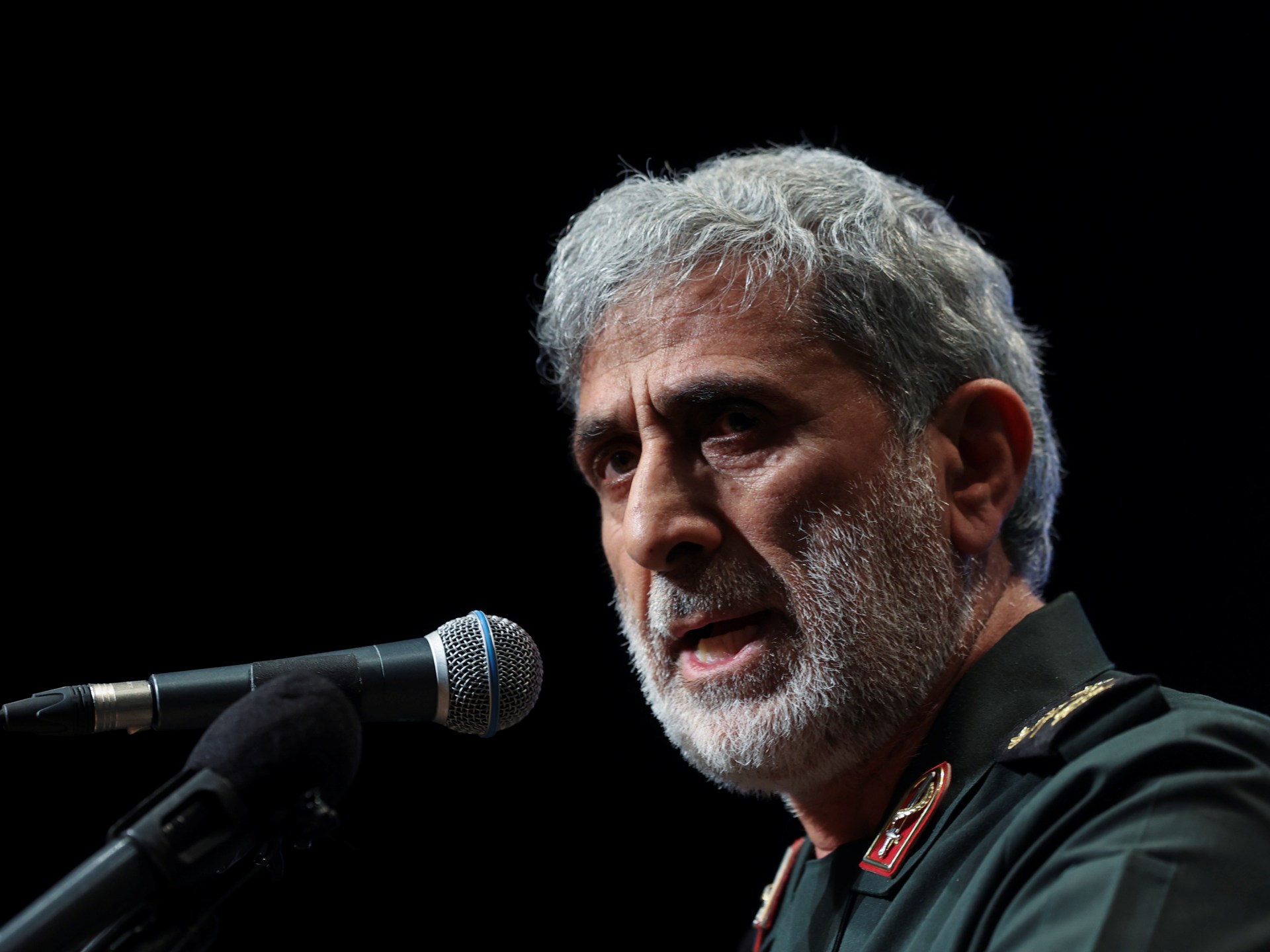Esmail Qaani was born in 1958 in the northeastern Iranian city of Mashhad (Reuters)
One of the most prominent commanders of Iran's Islamic Revolutionary Guard Corps (IRGC), he is known for his support for Iranian interference in countries in the region, particularly Iraq, Syria, Lebanon and Yemen. He participated alongside former IRGC commander Qassem Soleimani in the Iran-Iraq war during the eighties of the twentieth century, and rose through several positions until he became commander of the Quds Force on January 2020, <>, succeeding Soleimani.
Birth and upbringing
Esmail Qaani was born in 1958 in the city of Mashhad (the center of Khorasan province) in northeastern Iran. During his second decade of life, he joined the ranks of the Revolutionary Guards and received training courses in Tehran in early 1981.
Political experience
He began his duties at a training center affiliated with the Revolutionary Guards in the city of Mashhad, and with the start of protests and violence in the province of Kurdistan (west of the country), he went there in the same year, and after the establishment of the Quds Force continued his military duties there.
He became friends with Soleimani in 1983 on the front lines of the war, and the Islamic Republic News Agency (IRNA) quoted him as saying in a 2015 interview, "We are comrades of war, and it is the war that made us friends." "Those who become friends in times of distress have deeper and more sustainable relationships than those who become friends simply because they are neighborhood friends."
He participated as a fighter in the Iran-Iraq War and rose through military positions within the Revolutionary Guards, during which time he became commander of the 21st Imam Reza Division and the 5 Nasr Division, and served as chairman of the Joint Chiefs of Staff of the IRGC Intelligence.
He has been deputy commander of the Quds Force since 1997, the same year that Soleimani was appointed commander of the force, and Qaani succeeded him in January 2020 after US forces assassinated Soleimani in Baghdad.
He is seen as "Soleimani's most militant shadow," and Iranian media describe him as a tough man who is not much different from his predecessor, and says he has enough experience in dealing with various battlefronts, and is known as a theorist of the concept of "popular formations."
He was known for his support for Iranian intervention in the countries of the region, especially Iraq and Syria, in which he sees the war as "existential and fateful", as well as he participated in them as a military adviser, and was known for his support for the Syrian regime, and led operations on its behalf, in addition to media reports indicating his role in Lebanon and Yemen, and was the first to reveal that the Houthi group possesses missiles with a range of more than 400 kilometers.
In 2012, the US imposed sanctions on Qani, citing his role in payments to "elements in Africa" that Washington says are affiliated with the Quds Force and other "terrorist groups," according to the US.
Iranian opposition sources were quoted as saying that Qaani played a key role in running the Fatemiyoun Brigade, a militia of Afghan Shiite militants formed in 2014 and fighting to support Syrian President Bashar al-Assad's regime in Syria.
Esmail Qaani participated in the Iran-Iraq war and held several military posts in the Revolutionary Guards (Reuters)
Functions and responsibilities
- He commanded the IRGC's 21st Imam Reza Division in Razavi Khorasan Province (1984-1988) in the Iran-Iraq War.
- He commanded the division "Al-Nasr-5" in 1988.
- He served as deputy chairman of the Joint Chiefs of Staff for Intelligence of the Revolutionary Guards (2007-2008).
- Deputy Commander of the Quds Force of the Revolutionary Guards (1997-2019).
- He led the Quds Force on January 2020, <>, succeeding its late commander, Major General Qassem Soleimani.
Qaani and the Flood of Al-Aqsa:
After the battle of the Al-Aqsa flood, which was launched by the Izz al-Din al-Qassam Brigades, the military wing of the Islamic Resistance Movement (Hamas), on the settlements surrounding Gaza on October 7, 2023, Qaani sent a letter to Muhammad al-Deif, commander of the brigades, in which he said that "your brothers in the axis of resistance are united with you, and they will not allow the enemy and those behind him to single out Gaza and its people and achieve its dirty goals."
He stated that Palestine and the region will not be after the battle of the Al-Aqsa flood as they were before. He added that as part of what he called Iran's continued effective protection and support for the resistance, it will do everything it must in this historic battle, according to the letter.
Source : Al Jazeera + Websites

